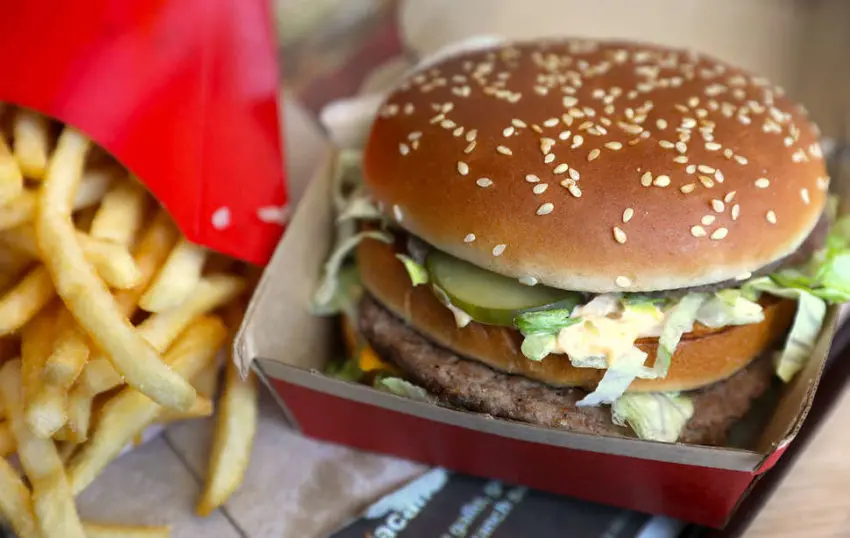Irish-based fast food chain Supermacs has won its battle to force burger giant McDonald’s to relinquish its “big mac” trademark in Europe.
In a judgment from the European Union Intellectual Property Office(EUIPO), it was found that McDonald’s had not proven genuine use of the contested trademark as a burger or a restaurant name.
The judgment opens the door for the group to expand into the UK and Europe, Supermacs managing director and founder Pat McDonagh told awaiting media after the hearing.
While the company has trademark protection for the Supermacs name in Ireland, extension of the trademark across Europe was contested by McDonald’s, he said.
“It [the EU patent office] has revoked the name that was originally granted in 1996 to McDonald’s,” Mr McDonagh noted.
The “big mac” was registered in Europe both as a food and under a category for restaurant names. This meant that McDonald’s could call a restaurant “big mac”. As a result of that, it was able to argue that if the Supermacs name was successfully trademarked, it could cause confusion for customers.
In order to fight that ruling, Supermacs had to formally submit a request to EUIPO to cancel use of the “big mac” trademark that McDonald’s had registered, arguing that it wasn’t being put to genuine use.
McDonald’s said the trademark is in use in a “number of member states” and that evidence showed it had been used in advertising and on the packaging of goods.
Under EU law, genuine use of a trademark exists where it is used to guarantee the identity of the origin of goods. EUIPO found that evidence submitted by McDonald’s was “insufficient” to establish genuine use of the trademark, resulting in its revocation.
The body found that McDonald’s would bear the costs for revocation.
Small businesses
Mr McDonagh said the trademark decision represents a victory for small businesses all over the world.
“We knew when we took on this battle that it was a David versus Goliath scenario but, just because McDonald’s has deep pockets, and we are relatively small in context doesn’t mean we weren’t going to fight our corner,” he said.
In addition to paving the way for Supermacs to use its brand on restaurants outside of Ireland, it also had the unintended consequence of allowing them use the “big mac” trademark on any food for sale, if they so wish.
In a statement on Tuesday, Supermacs accused McDonald’s of “trademark bullying; registering brand names which are simply stored away in a war chest to use against future competitors”.
The Ballybrit restaurant chain noted McDonald’s had previously succeeded in putting a stop to its expansion plans for the UK and Europe on the basis of the similarity between the name Supermacs and the “big mac”.
“This EUIPO judgment means that the main argument put forward by the US company is now gone,” Mr McDonagh said.
McDonald’s, which has the right to appeal the decision, has been contacted for comment.
Speaking about the hearing, Carissa Kendall-Windless, Senior Associate at intellectual property law firm EIP, said: “This decision is a significant one, partly because it serves as a warning to multinational companies that they can no longer simply file trademark applications without a genuine intention to use it (a bit like cybersquatting but instead “trademark squatting”).
Furthermore, it acts as a timely reminder that in these ‘David Vs Goliath’ cases, the smaller company may be legally advised, stubborn and keen to clear its own brand pathway, and thus does not always roll over and concede to the demands and objections of the larger multinational.
“McDonalds in some ways brought this cancelation of their Big Mac trademark upon themselves, by filing an objection against the ‘Supermac’ EU application by the Irish restaurant group. To mitigate against this scenario, trademark owners should set up and maintain an audit trail of their use of the trademark from the date they file it, as this would act as a strong riposte to such claims.
“However, it not necessarily all doom and gloom as it is important to bear in mind that McDonalds have the right to appeal the decision, which is a likely next step. Should this occur, there is no guarantee that the next judgement will render the same result as the first”.


